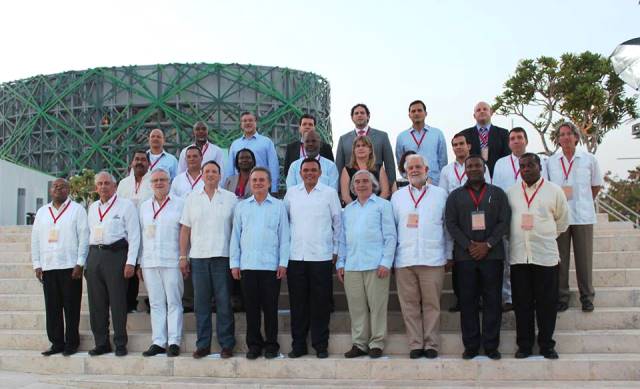

During May 25 and 26, energy ministers of Mexico, Chile, Colombia, Costa Rica, Jamaica Panama, Peru, St. Lucia, St. Kitts and Nevis, the United States, and other national authorities, agreed to jointly design a more dynamic Work Plan with concrete actions that would help boost Western Hemisphere’s leadership on energy and climate change issues. Said Plan envisions positioning ECPA as the primary regional mechanism for energy and climate dialogue and cooperation, and prepare the region to play a more significant role in the upcoming COP 21 Meeting in Paris. Participating countries will report on tangible results at the Third ECPA Ministerial to be hosted by Chile in 2017.
With these objectives in mind, a Joint statement was released at the end of the meeting held in Merida, Mexico, announcing the creation of a new Western Hemisphere Clean Energy Initiative. Through this effort, participating countries agreed to work toward a collective doubling of renewable sources such as solar, wind, small-scale hydropower, sustainable biomass, and geothermal, by 2030. Some of the topics this emerging initiative seeks to focus on include: facilitate each country’s roadmap to achieve its renewable energy goals in the context of its broader energy infrastructure; increase availability of quality renewable resource data; share modeling and simulation toolkits; showcase effective energy policy development and planning ; enhance the flexibility and resilience of grid systems; foster energy innovation and promote workforce capacity and training; focus on the energy-water nexus; and promote energy access, including for remote communities.
Moreover, participating countries in the Western Hemisphere Clean Energy Initiative aim to foster momentum for technology and policy solutions in support of the United Nations Framework Convention on Climate Change (UNFCCC) Conference of the Parties (COP21) meeting in Paris and beyond. These Member States will identify areas of cooperation with other global and regional efforts, governments, international organizations, private sector, and civil society groups.
Moreover, the issues identified as priorities to be addressed by ECPA were outlined: to define a vision and mission that generates hemispheric leadership position for Cop21 in Paris and promote regional cooperation; technical assistance for acquiring financial resources; strengthening institutional capacities and training of human capital for sustainable energy management; and mapping of regional and sub-regional vulnerable areas and alternative energy sources.
Aware of the need to address the lack of a governance structure for ECPA, participating governments agreed to forward a structure that could exercise that ability, without compromising the Alliance´s characteristic flexibility. Chile, United States, Mexico, Dominican Republic, the Organization of American States (OAS) and the Inter-American Development Bank (IDB) are part of ECPA’s new Steering Committee. The aim of this surveillance body is to review, validate and monitor policy and technical activities contained in the Work Plan.
The first ECPA Steering committee meeting is scheduled for the last quarter of 2015, on the fringes of an ECPA Clearinghouse regional event. During this initial meeting, members of the Steering Committee and the ECPA Clearinghouse team, will review and approve the Work plan that will determine the areas of focus and specific actions that this initiative will pursue through 2017.
 View Map
View Map